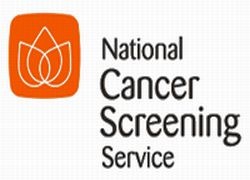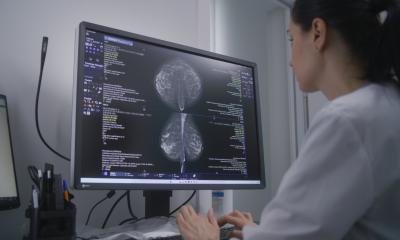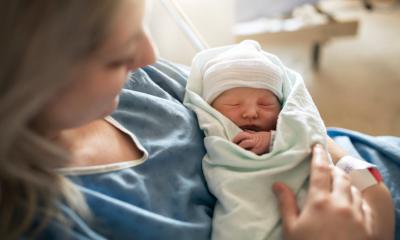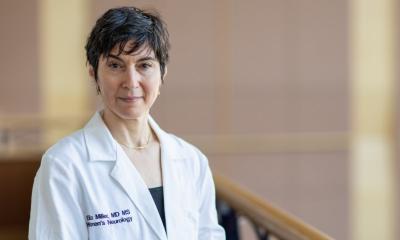Ireland Pulling into Europe's fast lane for digital screening
Scotland Under-funding, and clinical standards in breast cancer services are 'under review'
In Ireland, breast cancer is particularly virulent: 18.5% of all cancer related deaths among the women are due to breast cancer.

In 2004, Ireland’s health service recognised the need to serve the entire country through the Irish government-funded National Breast Screening Programme, BreastCheck. To provide a breast screening service at the highest possible level the usual procedures were necessary - funds had to be gained; equipment analysed; requests for tenders issued; evaluations made and finally contracts would be awarded then confirmed. Six companies tendered quotes. And now, 29 state-of-the-art mammography machines - manufactured by GE, Hologic and Sectra – are about to make Ireland one of the first European countries to provide a fully digital, state-of-the-art breast screening service.
GE Healthcare is to supply thirteen Senographe Essential full-field digital mammography (FFDM) machines, six of them for mobile units. (Within the total, two of the mobile units are from a previously awarded contract).
Ireland’s rural roads are certainly a consideration for mobile units. Machine robustness is essential. Following 8,000 km vibration impact tests across the country, ‘… radiographers concluded positively on the digital equipment and workflow in the new mobile environment,’ commented Niall Phelan, Chief Physicist of BreastCheck.
Hologic has been contracted to supply nine of the 29 FFDM systems ordered by BreastCheck. Six will be the firm’s Selenia FFDM mobile system, one a Selenia base system, and the order includes two MultiCare Platinum breast biopsy tables. ‘We expect more new orders to follow,’ says Hologic.
Outside of the new award from BreastCheck, Hologic already has at least one Selenia system installed and running within the Irish service, the company reports.
Sectra has been contracted to supply seven units to BreastCheck. In 2005, this screening programme began to evaluate the firm’s MicroDose Mammography system, ‘…which is based on a unique photon-counting technology - a technique that an increasing number of experts point to as the radiology technology of the future,’ Sectra reports, adding that they system also delivers the lowest radiation dose on the market.
Along with other manufacturers’ equipment, it will be linked to the existing PACS, and the comprehensive digital infrastructure is expected to go into operation by the end of 2007. ‘We’ve been pleased with the reliability and image quality of the Sectra systems and expect them to perform just as well in the more demanding environment of mobile screening trailers in which a number of the new systems will by used,’ Niall Phelan said.
Following all the processing necessary in procurement, Niall Phelan confirmed that BreastCheck will be ‘one of the most advanced screening services’. Wouldn’t it have been easier and perhaps quicker, I wondered, to obtain equipment from just one company? Would this be like putting all one’s eggs in one basket? ‘All systems have their advantages and disadvantages,’ Niall Phelan explained. There is also the question of ensuring that if one machine goes down for any reason, and must await servicing, the rest keep operating; after service will be critical to keep such a large and comprehensive service out and about on Ireland’s roads.
BreastCheck - Working with a multi-disciplinary team of specialist clinicians, radiographers and breast care nurses, and including mammography, diagnosis and primary treatment, BreastCheck provides a free breast screening service to eligible women by personal invitation every two years. The programme screens systematically on an area-by-area basis - each service area reflecting electoral divisions.
Currently the service provides screening to women in the northeast, east, midlands and parts of the south east of the country through two static units (the Eccles Screening Unit, near Mater Misericordiae University Hospital and Merrion Screening Unit near St.Vincent’s University Hospital) and a fleet of mobile units. In 2005, BreastCheck invited 78,945 women for screening; 59,443 women attended appointments, the service reports. Now, BreastCheck is expanding nationally to cover women in Ireland’s south and west. The screening programme will be extended nationwide and the target date for commencement of expansion programme is by the end of autumn, this year.
A Southern screening unit is being built in Cork, on the campus of South Infirmary Victoria Hospital and a Western screening unit will be located at University College Hospital, Galway. These units, plus a fleet of mobile units, will provide screening to the rest of the country.
Following this national expansion of the screening programme the upper age limit will be extended to women aged 69, in accordance with the European Council’s recommendation.
Scottish woes
Last September news broke that, despite advice from its Breast and Cervical Screening National Advisory Group, Scotland’s National Health Service (NHS) would not fund a £20 breast-screening test, which, according to oncologists, could have detected around 430 more tumours annually and saved dozens of lives. The result for other women was mastectomies that would have been avoidable if the breast cancer had been detected earlier.
By imaging women from just one angle, rather than two, the Service saved £20 per patient. The Advisory Group had recommended the introduction of a ‘two-view’ mammography programme, and even advised it would be cost-effective.
In 2004, the amount spent on the country’s breast screening programme was £10 million. A further £2 million would have been needed to provide dual X-rays to the 121,000 women, aged 50-70 years, invited for screening each year.
It was said that although the NHS recognised the benefits of two-view mammograms, funds were being stretched to introduce colorectal cancer screening. The result was that, during a first screening, X-rays were taken of the woman’s breast from above and the side; but in subsequent screenings the image was taken only from the side.
Many oncologists expressed concern that Scotland did not do what is being done just south of the border in England.
In Scotland breast cancer kills over 1,000 women annually. Although 2003 figures indicate that around 1,800 breast cancers were detected there during screening, more recent figures show that only 78.5% of cancer patients were treated within two months of an urgent referral by their general practitioner (GP) - well below a 95% target.
Scotland upgrades to two-view
In February this year, the Scottish Executive announced that the breast screening programme would be upgraded, to use two-view mammography.
Recalled patients - After examining medical records of 1,600 patients over a previous 18-month period, 198 women being treated for suspected breast cancer at Inverclyde Royal Hospital, in Greenock, are being recalled by the health board to be re-examined because they had not received the required mammography or ultrasound and biopsy in addition to the standard clinical breast examination.
A full review of breast services at the hospital has been ordered by the NHS Greater Glasgow and Clyde, whose CEO, Tom Divers, said the differences in standards between Inverclyde and other breast clinics in the area first emerged during an audit of breast cancer care. ‘This highlighted that, when compared to other centres, a lower percentage of patients seen at Inverclyde had diagnosis confirmed before surgical intervention. Further interrogation of these results has now identified that some patients did not receive the full range of appropriate tests when being assessed for suspected breast cancer. This has prompted us to launch a full review of practices at those clinics.’
No other clinics within the Greater Glasgow and Clyde area are affected.
Health Secretary Nicola Sturgeon said she would carefully monitor the board’s actions. ‘All the lessons learned will be shared with NHS boards across Scotland,’ she added. ‘I am also asking NHS Quality Improvement Scotland to accelerate completion of the current review of clinical standards for breast cancer services, which are already in process of being updated in the light of advances in clinical knowledge and techniques.’
20.06.2007










